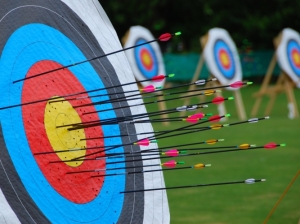There are a lot of people saying mosques should be closed completely; no Jumuah Salah and no daily congregation in place and we must seize all activity. As precautionary and sensible as this sounds, we need to be mindful of many factors before such extreme measures are taken.
What role does the Masjid play in the Muslim community?
عَنْ أَبِي هُرَيْرَةَ، عَنِ النَّبِيِّ صلى الله عليه وسلم قَالَ “ سَبْعَةٌ يُظِلُّهُمُ اللَّهُ فِي ظِلِّهِ يَوْمَ لاَ ظِلَّ إِلاَّ ظِلُّهُ الإِمَامُ الْعَادِلُ، وَشَابٌّ نَشَأَ فِي عِبَادَةِ رَبِّهِ، وَرَجُلٌ قَلْبُهُ مُعَلَّقٌ فِي الْمَسَاجِدِ، وَرَجُلاَنِ تَحَابَّا فِي اللَّهِ اجْتَمَعَا عَلَيْهِ وَتَفَرَّقَا عَلَيْهِ، وَرَجُلٌ طَلَبَتْهُ امْرَأَةٌ ذَاتُ مَنْصِبٍ وَجَمَالٍ فَقَالَ إِنِّي أَخَافُ اللَّهَ. وَرَجُلٌ تَصَدَّقَ أَخْفَى حَتَّى لاَ تَعْلَمَ شِمَالُهُ مَا تُنْفِقُ يَمِينُهُ، وَرَجُلٌ ذَكَرَ اللَّهَ خَالِيًا فَفَاضَتْ عَيْنَاهُ ”.
The Prophet (ﷺ) said, “Allah will give shade, to seven, on the Day when there will be no shade but His. (These seven persons are) a just ruler, a youth who has been brought up in the worship of Allah (i.e. worships Allah sincerely from childhood), a man whose heart is attached to the mosques (i.e. to pray the compulsory prayers in the mosque in congregation), two persons who love each other only for Allah’s sake and they meet and part in Allah’s cause only, a man who refuses the call of a charming woman of noble birth for illicit intercourse with her and says: I am afraid of Allah, a man who gives charitable gifts so secretly that his left hand does not know what his right hand has given (i.e. nobody knows how much he has given in charity), and a person who remembers Allah in seclusion and his eyes are then flooded with tears.”
For many of us, the Masjid is our fortress, our sanctuary, a safe haven for others, I would call it the Muslim man’s castle.
We all know what the doctors and medical professionals are advising, we are all well versed with the statistics of the media, but in all of this, doesn’t Allah matter? Doesn’t the Prophet ﷺ matter? Doesn’t the Quran mean anything? Doesn’t the Hadith mean anything? We need to strike a balance.
Like most things in the Muslim community, we have two extremes; the doctors and medics are saying, “Close all the masajid!” And certain Imams and Muftis are insisting to keep open, with restrictions. Please refer to the Hadith above where it clearly shows attachment to the Masjid is a sign of Iman. Either way, we should be upset at the Masajid closing, not apathetic or hasty.
Where is the balance?
We need to have restrictions and be firm with the people and if that means sending certain
It’s not an easy decision closing Masajid and this is why people are getting emotional. Remember the Hadith when the Prophet SAW was forced to leave Makkah?
Ibn ‘Abbas (Allah be pleased with him) narrated: “The Prophet (Allah be pleased with him) said, addressing Makkah: “How good you are as a land and how dear you are to my heart! Had your people not forced me out of you, I would have never come out and left you and would have never resided in any other city but you.” (At-Tirmidhi)
Personally, the decision should come from those who actually attend the Masjid regularly, whether they are a doctor, an Imam or a Mufti. It seems insensitive to have these decisions regulated by someone who doesn’t come to the Masjid frequently or simply attends for Jumuah Salah. This may sound unreasonable to some people, but some of us rely solely on the Masjid and its activities for our Iman, be it Salah, Adhkar, Dua and Bayans. Safeguarding Iman is also important, just like preserving our health, we don’t hear this [balance] from people who are saying close the Masajid. If a brother or sister doesn’t feel safe coming to the Masjid, because they are more prone to illnesses or vulnerable or have weaker faith, then they are advised to stay at home, but let others continue to come with restrictions in place.
Did the Prophet ﷺ pray at home in Rain?
Once, on a cold night, Ibn `Umar (Allah be pleased with him) pronounced the Adhan for the prayer at Dajnan (the name of a mountain) and then said, “Pray at your homes”, and informed us that Allah’s Messenger (ﷺ) used to tell the Mu’adh-dhin to pronounce Adhan and say, “Pray at your homes” at the end of the Adhan on a rainy or a very cold night during the journey.” (Bukhari)
This Hadeeth is authentic, but what needs to be remembered here is that this was for one night or two. This wasn’t the ruling for several weeks or months. 50,000 Sahabah (Allah be pleased with them) died from the Plague of Amwaas. How many Masajid were closed? When Uthman (Allah be pleased with them) was made Shaheed, was the Masjid shut? Despite people rebelling and threatening lives. Let’s be fair, instead of cherry-picking Hadeeth and shopping for Fatwas.
Contagious Diseases in Islam
Bukhari (5776) and Muslim (2224) narrated from Anas ibn Malik (may Allah be pleased with him) that the Prophet (peace and blessings of Allah be upon him) said: “There is no ‘adwa (transmission of infectious disease without the permission of Allah) and no tiyarah (superstitious belief in bird omens), but I like good omens.” They said: What is a good omen?” He said: “A good word.”
The words of the Prophet (peace and blessings of Allah be upon him) “There is no ‘adwa” are general in meaning, thus the Prophet (peace and blessings of Allah be upon him) states that there is no contagion (without the permission of Allah).
‘Adwa (contagion) refers to the spread of a disease from a sick person to a healthy one. What happens in the case of physical diseases may also happen in the case of psychological diseases. Hence, the Prophet (peace and blessings of Allah be upon him) said that a bad companion is the like one who operates the bellows: Either he will burn your clothes, or you will notice a bad smell from him.
The words “there is no ‘adwa” include both physical and psychological diseases, even though it is more apparent with regard to physical disease.
This does not mean that these things do not happen, because they do happen. Rather it is a statement that they do not have any effect. The One Who causes things to happen is Allah. If any of these things has a known effect then that is valid and real; if any of them is imagined to have an effect, then that is invalid and false. Thus, the hadeeth demonstrates that if there is a valid effect, it cannot be attributed to that thing itself (rather the One Who causes it to happen is Allah). If the effect is merely imagined, then this hadeeth is stating that it has no effect in the first place.
With regard to the words “no contagion (‘adwa)”: contagion is something that happens, as is indicated by the words of the Prophet (peace and blessings of Allah be upon him), “Do not put a sick one with a healthy one” i.e. the owner of a sick camel should not bring it to the owner of a healthy camel, lest the contagion be transmitted.
The Prophet (peace and blessings of Allah be upon him) also said: “Flee from the leper as you would flee from a lion.”, Leprosy is a serious disease that is transmitted quickly and kills the one who catches it. It was even said to be a plague. Hence, the command to flee from the leper so that the disease will not be transmitted from him to you. This is an affirmation of the effect of contagion, but its effect is not inevitable in such a way that it affects people by itself. The command of the Prophet (peace and blessings of Allah be upon him) to flee and not to bring sick camels to where healthy camels are,
“And do not throw yourselves into destruction” [al-Baqarah 2:195]
We cannot say that the Messenger (peace and blessings of Allah be upon him) was denying the effect of contagion, because contagion is something that is proven to exist in real life and is mentioned in other ahadeeth.
When the Prophet (peace and blessings of Allah be upon him) said “there is no ‘adwa”, a man said: “O Messenger of Allah, the camels may be healthy like deer, then a mangy camel comes and mixes with them and they all get the mange.” The Prophet (peace and blessings of Allah be upon him) said: “And who infected the first one?” meaning that the disease came to the first one with no contagion, rather it came from Allah. By the same token, if it was transmitted by contagion, then it was transmitted by the command of Allah. A thing may have a known cause or it may not have a known cause. The mange of the first one does not have a known cause, apart from the fact that it happened by the will and decree of Allah, and the mange that came after it does have a known cause. But if Allah wills the camel will not become mangy. Hence, sometimes a camel may get the mange but then it recovers and does not die. The same happens with the plague and cholera; they may enter a house and some may get sick and die, while others are not affected at all.
We HAVE to put our trust in Allah and depend on Him. It was narrated that a leper came to the Prophet (peace and blessings of Allah be upon him) and he took him by the hand and said, “Eat,” i.e., eat of the food that the Messenger (peace and blessings of Allah be upon him) was eating– because of the strength of his trust in Allah. This trust counteracts the causes of contagion.
What we have referred to above is the best way of reconciling between the ahadeeth.
Based on this, what is meant by the words of the Prophet (peace and blessings of Allah be upon him) “no ‘adwa (contagion)” is that disease is not transmitted from a sick person to a healthy one by itself, rather it is transmitted by the will and decree of Allah. If a sick person mixes with healthy ones this is one of the causes of the transmission of disease. But this does not mean that it will inevitably happen, rather it only happens if Allah wills it. Hence we often see a sick mother give birth to a healthy child, but the disease is not transmitted to the infant.
Conclusion
Before closing the Masajid, the above points must be taken into consideration, exactly what Islam says about contagious diseases and the role the Masjid plays. When calamities arose the Prophet actually turned to the Masjid and turned to Allah, here we are, doing the opposite and saying Ulama and Muftis are narrow-minded and have the backward mentality. It’s because many people saying these things are not regular goers to the Masjid, they are armchair critics. I reiterate the people attending the Masjid MUST make the decision for Masjid closure, be it, Imam or health professionals. And please take it in steps, rather than complete lockdown. Cut down Salah in the Masjid, from 5 to 4 to 3, etc. Rather than 5 to 0. Allah grant us all ease, hope and mercy in these testing times, Allah grant us his light and generosity in these dark times.
Ismail
25 Rajab 1441




 → THIS IS A PERVERSION
→ THIS IS A PERVERSION Happiness or Money?
Happiness or Money?







 1 From the collection of Sahih Muslim
1 From the collection of Sahih Muslim
